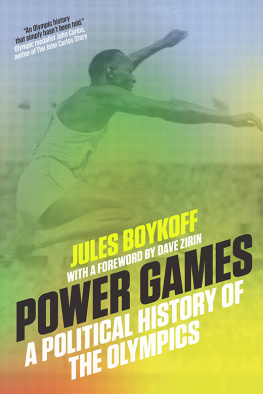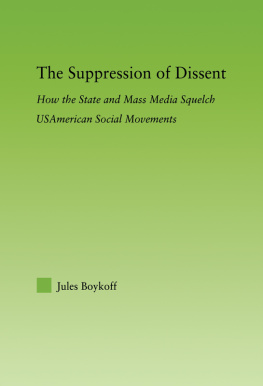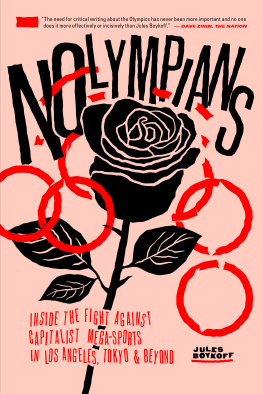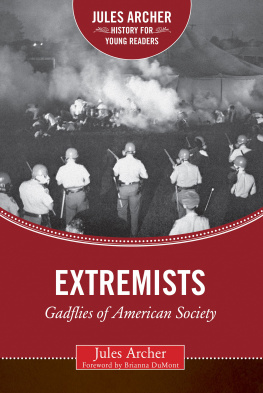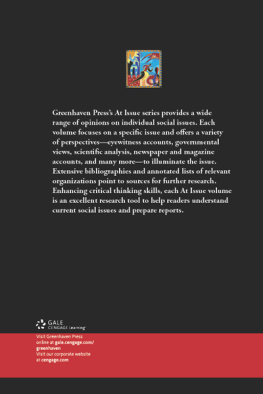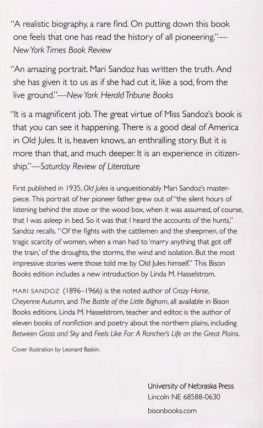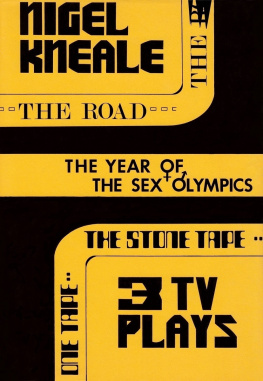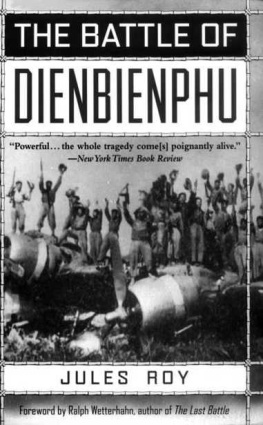Activism and the Olympics
Critical Issues in Sport and Society
Michael Messner and Douglas Hartmann, Series Editors
Critical Issues in Sport and Society features scholarly books that help expand our understanding of the new and myriad ways in which sport is intertwined with social life in the contemporary world. Using the tools of various scholarly disciplines, including sociology, anthropology, history, media studies and others, books in this series investigate the growing impact of sport and sports-related activities on various aspects of social life as well as key developments and changes in the sporting world and emerging sporting practices. Series authors produce groundbreaking research that brings empirical and applied work together with cultural critique and historical perspectives written in an engaging, accessible format.
Activism and the Olympics
Dissent at the Games in Vancouver and London
Jules Boykoff
Rutgers University Press
New Brunswick, New Jersey, and London
Library of Congress Cataloging-in-Publication Data
Boykoff, Jules.
Activism and the Olympics : dissent at the games in Vancouver and London / Jules Boykoff.
pages cm.(Critical issues in sport and society)
Includes bibliographical references and index.
ISBN 9780-813562025 (hardback)ISBN 9780-813562018 (pbk.)ISBN 9780-813562032 (e-book)
1. OlympicsPolitical aspects. 2. OlympicsSocial aspects. 3. Dissenters. 4. Olympic Winter Games (21st : 2010 Vancouver, B.C.) 5. Olympic Games (30th : 2012 : London, England) I. Title.
GV721.5.B668 2014
796.48dc23
2013040634
A British Cataloging-in-Publication record for this book is available from the British Library.
Copyright 2014 by Jules Boykoff
All rights reserved
No part of this book may be reproduced or utilized in any form or by any means, electronic or mechanical, or by any information storage and retrieval system, without written permission from the publisher. Please contact Rutgers University Press, 106 Somerset Street, New Brunswick, NJ 08901. The only exception to this prohibition is fair use as defined by U.S. copyright law.
Visit our website: http://rutgerspress.rutgers.edu
For Kaia and Jessi
Contents
Thank you to the following people for their assistance, feedback, and encouragement during the writing of this book: Thomas F. Carter, Pete Fussey, Mike Geraci, Tina Gerhardt, Isaac Marrero-Guillamn, Ian McDonald, Tom Mertes, Alan Tomlinson, Paul Watt, Lissa Wolsak, and Dave Zirin. Thanks to Casey Nishimura and Matthew Yasuoka for fabulous research assistance. And big thanks also to all the political activists in Vancouver and London who took time to speak with me.
Thanks be to Douglas Hartmann, Michael Messner, and Peter Mickulas at Rutgers University Press. I feel fortunate to have worked with such a terrific trifecta of editorial sagacity and good cheer. I also appreciate the constructive feedback offered by this projects anonymous reviewers.
Some ideas in this book had a previous life in Contemporary Social Science, CounterPunch, Dissent Magazine, Extra!, the Guardian, Human Geography, the Nation, New Left Review, the New York Times, and Red Pepper. I also had the good fortune of presenting early stages of work from this book at the 2011 North American Society for the Sociology of Sport annual meeting and the 2012 International Symposium for Olympic Research at Western Ontario University. I would like to extend thanks to the University of Brighton for hosting me as a visiting scholar in spring 2012. This research was supported by a Graves Award in the Humanities, a Pacific University faculty development grant, and a Story-Dondero faculty development grant.
Finally, infinite gratitude to my two angels, Kaia Sand and Jessi Wahnetah, for their love and support, their creativity and zest. Together, all things are possible.
The Olympics and Me
In his detective-fiction thriller An Olympic Death, Manuel Vsquez Montalbn captured what it was like to be in Barcelona as the city prepared to host the 1992 Summer Olympics. The acclaimed Spanish novelist and leftist columnist for El Pas presented one character in the book, a former Spanish revolutionary turned suit-sporting banker, to highlight the power of the Games to turn political beliefs into ideological jelly designed to sweeten capital accumulation. Underscoring the importance of international investment flows, the fictitious flip-flopper pivoted professionally to rivet his attention on profiteering from the Barcelona Games, audaciously declaiming, Do you know how many foreigners we have in the city at this moment, all trying to get a piece of the Olympic action? An Olympics needs everything from a thimble to an elephant. Well, I have a complete collection of thimble salesmen, and another collection of elephant salesmen too. Another character in the novel, a formerly fledgling artist who sniffs Olympic-induced financial fortune, points toward the role of the culture industry in promoting the Games. He remarked, Everything that moves in Barcelona these days is at the service of the Olympics. You have people coming to buy the place, people coming to see it all, and all the rest of us trying to sell it. Theres not one artist in this city whos not looking out for what he can get out of the Olympics. Such connivance led Montalbn
Such Manichaean framingyoure either for the Olympics or against thembecomes commonplace when the Games roll into a host city. Supporters of the Olympics sing full-throated music about the sporting brilliance that will soon grace the athletic terrain. Boosters also croon from the Olympic hymnal about benefits that will inexorably unfold for the city and its inhabitants. Elected officials, business leaders, and sports aficionados harmonize their messages, promising an influx of jobs, an uptick in urban development, and a spike in good cheer. Artists, entrepreneurs, and workers construct plans to profit from the two-and-a-half-week sports party. Urban planners and architects strategize, parlaying extant plans with Olympic needs, flinging ongoing projects into overdrive, and dreaming up fresh blueprints fit for the once-in-a-generationif not once-in-a-lifetimeopportunity the Games present. As the Games approach, the media cover the building Olympic buzz.
Meanwhile, often in the margins of political discourse, the incorrigibly inquisitive raise skeptical, speculative questions about the bold promises and happy-faced assurances that Olympics boosters are piping into the social ether. Will the Games really create a booming economy replete with long-term jobs and investment? If so, for whom will it boom? Will hosting the Games discourage the tourism that would normally occur, creating an economic trade-off trending toward just breaking even? Why are police and security forces requesting extra weaponry? Will the Games intensify nationalism in an age of deterritorialized globalization? After pursuing answers to these questions, some decide the Games will only exacerbate inequality and drain taxpayer coffers in the name of a flag-waving festival of sport. And, of course, many people dont care about sports in the first place, viewing them as a nuisance, a distraction, a superfluous social sidecar, a new-wave opiate of the masses.




